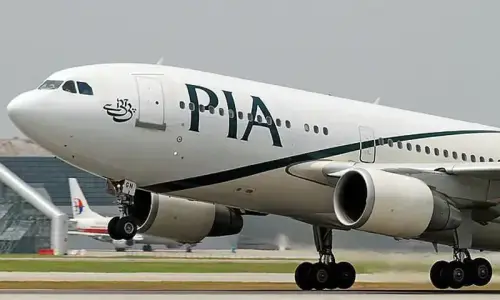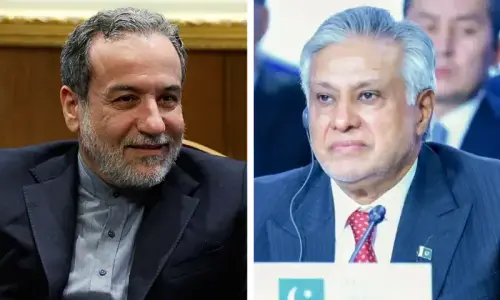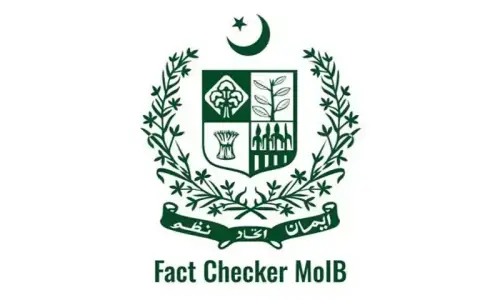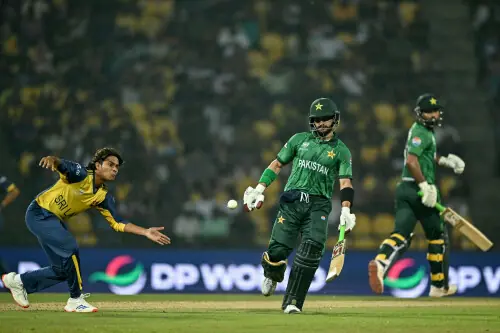
WASHINGTON: “No, it's not time to divorce a nation on Earth that has 100 nuclear weapons and is on the way to double that at some point,” said Republican presidential candidate Mitt Romney when asked in the third and final presidential debate if it was time for the United States to divorce Pakistan.
Mr Romney, however, endorsed the drone strikes, saying that he supports the Obama administration’s policy on this key issue.
Mr Obama did not directly address this issue but when confronted by the moderator, CBS anchor Bob Schieffer, he said he was also engaging the countries where the United States was fighting terrorists.
Mr Obama also avoided responding directly to questions about Pakistan and neither the moderator nor Mr Romney pressed him for an answer, reflecting an apparent understanding on not concerning the president on sensitive security issues.
“I believe we should use any and all means necessary to take out people who pose a threat to us and our friends around the world. And it's widely reported that drones are being used in drone strikes, and I support that and entirely,” Mr Romney said, while endorsing the current US policy on these unmanned aircraft.
He said he felt that President Obama was “right to up the usage of that technology, and believe that we should continue to use it, to continue to go after the people that represent a threat to this nation and to our friends.”
Pakistan was mentioned 25 times in the 90-minute debate but mostly by Mr Romney.
US President Barack Obama mentioned Pakistan only four times, twice when talking about his decision to raid Osama bin Laden’s hideout in Abbottabad.
“And you said we should ask Pakistan for permission. And if we had asked Pakistan permission, we would not have gotten him. And it was worth moving heaven and earth to get him,” said Mr Obama while quoting from Mr Romney’s earlier statement on this issue.
“I can tell you at the same time, that we will make sure that we look at what's happening in Pakistan, and recognize that what's happening in Pakistan is going to have a major impact on the success in Afghanistan,” said Mr Romney when asked if he would still withdraw US troops from Afghanistan if he was told that Kabul was not yet ready to shoulder security responsibilities by 2014.
“And I say that because I know a lot of people that feel like we should just brush our hands and walk away,” he said.
“And I don't mean you, Mr President, but some people in our nation feel that Pakistan is not being nice to us, and that we should walk away from them,” he explained.
“But Pakistan is important to the region, to the world and to us, because Pakistan has 100 nuclear warheads and they're rushing to build a lot more. They'll have more than Great Britain sometime in the relatively near future.”
Mr Romney noted that Pakistan also had the Haqqani Network and the Taliban within its borders. “And so a Pakistan that falls apart; becomes a failed state, would be of extraordinary danger to Afghanistan and to us,” he warned.
That’s why, he said, he believed the United States will have to “remain helpful in encouraging Pakistan” to move towards a more stable government and rebuild its relationship with America.
“And that means that our aid that we provide to Pakistan is going to have to be conditioned upon certain benchmarks being met,” said Mr Romney, defending a bilateral congressional demand that US aid to Pakistan should be made conditional to its performance in the war against terrorists.
“So for me, I look at this as both a need to help move Pakistan in the right direction, and also to get Afghanistan to be ready, and they will be ready by the end of 2014,” said Mr Romney while defining his policy for the Pak-Afghan region.
President Obama, when asked the same question, explained how he withdrew American troops from Iraq, refocused on Afghanistan and delivered a surge of troops to that country.
His administration also had decimated al Qaeda's core leadership in the border regions between Afghanistan and Pakistan.
The moderator then recalled that Gen. Johan Allen, the US commander in Afghanistan, says Americans continued to die at the hands of groups who were supported by Pakistan.
“We know that Pakistan has arrested the doctor who helped us catch Osama bin Laden. It still provides safe haven for terrorists, yet we continue to give Pakistan billions of dollars,” he said.
“Is it time for us to divorce Pakistan?” the moderator asked.
“No, it's not time to divorce a nation on Earth that has 100 nuclear weapons and is on the way to double that at some point, a nation that has serious threats from terrorist groups within its nation, as I indicated before, the Taliban, Haqqani Network,” said Mr Romney.
“It's a nation that's not like others and it does not have a civilian leadership that is calling the shots there. You have the ISI, their intelligence organization, is probably the most powerful of three branches there. Then you have the military and then you have the civilian government.”
Mr Romney warned that this was a nation, which, “if it falls apart, if it becomes a failed state, there are nuclear weapons there and you've got terrorists there who could grab their - their hands onto those nuclear weapons.”
Pakistan, he noted, was in a region which was important for the United States and technically it was an ally even if “they're not acting very much like an ally right now.”
That’s why, he said, he believed “we have some work to do there.
The Republican presidential candidate said he was not blaming the Obama administration for a strained relationship with Pakistan.
“We had to go into Pakistan. We had to go in there to get Osama bin Laden. That was the right thing to do. And that upset them, but obviously there was a great deal of anger even before that,” he said,
“But we're going to have to work with the people in Pakistan to try and help them move to a more responsible course than the one that they're on.”
For Pakistan to change its course was important for them and for their nuclear weapons.
“It's important for the success of Afghanistan because inside Pakistan, you have large group of Pashtun that are Taliban. They're going to come rushing back in to Afghanistan when we go.”



























